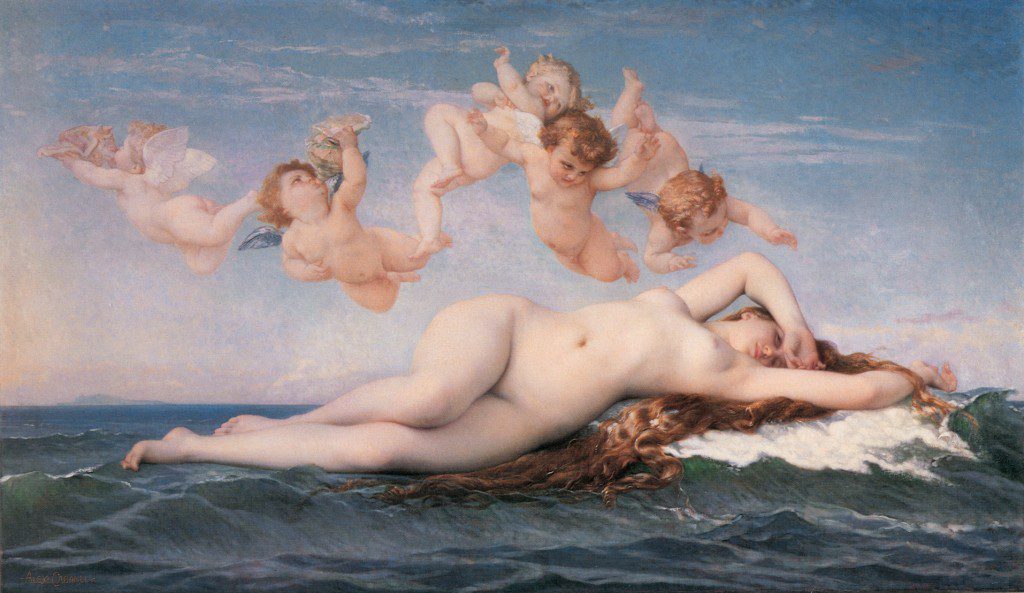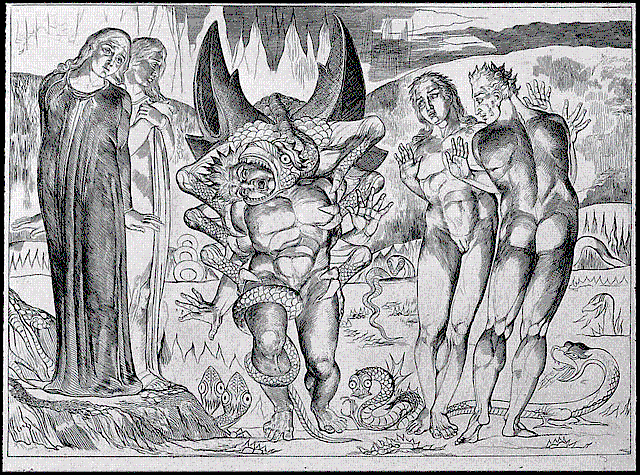When I am in love I am uncertain, and my uncertainty makes me certain that I am in love.
I am uncertain why my beloved loves me. In her gaze, there is no understanding that “I am somewhere near a 7, she near an 8, we have these common interests and this mutual, biochemical attraction, and the sum total of all these things is the reason for her love.”
Her love remains a mystery.
In fact, any love that I’ve been happy enough to experience has come with the realization that “I don’t deserve this.”
I do not deserve to be forgiven by my friends. I do not deserve the kindness of my readers. If I were asked why I deserve the love of my family, I would panic in an attempt to gauge my relative worth before realizing what seems to be true: My family is a gift. No one deserves a gift. Gifts are simply given.
Love is a gift of self, and a deserved gift is not a gift, it is a paycheck. When I am certain about the other’s love for me — when I can give a reason for her love and a justification for my being loved — then I have torn love from the realm of gift and forced it into the Wal-mart world of transaction, for if I deserve love, then my beloved owes me her love, and we are made merchants.
So I am uncertain why my beloved loves me, and because of this uncertainty, I am certain that she does, for love is a gift, and a gift needs no reason for being given. Gifts, like babies, are unfathomable.
But there is a far deeper uncertainty. I cannot explain — in any rational way — why I love her.
Whenever I try to answer the question I end up resorting to a tautology: “I love her for who she is.” This phrase has always struck me as true when I utter it in love, and idiotic when I consider it rationally, in the same way things said drunk sound idiotic sober.
“I love her for who she is.” The word “her” already contains in its meaning “who she is”, and so all I am really saying is “I love her for her.” But even here, why the extra “for her”? Is this not already understood in the phrase “I love her?” If I said “I love to waterski for waterskiing” I would sound stupidly redundant.
I am trying to express that I do not love this or that quality, nor a particular usefulness, nor a particular moment, no, I love her, and I cannot possibly give a reason for this love that does not transcend all reasons and simply point to the existence of my beloved. Why her? Because her. As Pascal said: “The heart has its own reasons, of which reason knows not.”
I cannot possibly give a reason for this love that does not transcend all reasons and simply point to the existence of my beloved. Why her? Because her. As Pascal said: “The heart has its own reasons, of which reason knows not.”
I remember being disappointed with myself for having a list of my beloved’s lovable traits — “I love her because she is charming, kind, etc.” — and now I understand why.
True love persists when all lovable traits are latent or absent in the beloved. I love when my beloved is everything but charming. I loves her in her ugly days. “I love her no matter what” — is this not the distinguishing phrase of love in any form it takes? The vows of marriage give testimony to this fact: We love “rich or poor, in sickness or in health.”
All I can say is “I love her for her”, because love responds to the beloved’s very being. Thus I am uncertain as to why I love — at least, I cannot give a reason for my love — and because of this uncertainty, I am certain that I have found love indeed, for I love her, and love has nothing to do with any combination of attributes or uses that may serve as a reason.
Now there is no conceivable point in which love is completed. I’ve watched my father and mother weather thick and thin, and one thing has been made undeniably clear to me: There is no point in which lovers can sit back and say, “Here we are. We’ve arrived. We love each other. We have finished this project of love.”

Love is an act of becoming one. One Jack and another Jill both exist in one friendship. There are two lovers, but only one marriage. The relationship of love between the teacher and the student makes one class. In an erotic arithmetic, 1 + 1 = 1.
My task of love is never finished in my lifetime, because there is always the capacity for deeper intimacy with my beloved’s subjectivity. If a “You” is infinitely not an “I”, and an “other” is infinitely not a “self”, then any motion which aches with the sweet pain of pulling You and I into one must be an infinite motion. As such, love cannot be completed in finite existence.
So when I look upon my beloved, I must acknowledge that my love is an action orientated towards an end which I cannot perceive as attainable in this limited, physical universe — namely, complete oneness with the other. But again, because of this uncertainty, I am certain that I am in love and nothing else. The man who has loved to an endpoint — who has loved enough — is not a lover. Love is not attained, but acted. Which leads me to my last uncertainty.
I do not know love as I know with scientific certainty that leaves contain chlorophyll and that whales are mammals. Prove to me that water is one part oxygen and two parts hydrogen and I will know the fact — I cannot know love in the same way. If I could, all love would require is a single “I love you” and I would know it. But lovers need constant expressions of love, in silence, in gifts, in touches, and poetry. Love is eternally acted or dead.
I know love by being loved, I do not know it as a rational phenomenon, outside of me, available to my cool, disinterested reasoning.(It was foolish, when my girlfriend asked “Do you still love me?”, to have gone about proving the existence of my love, as if love was an object that only needed enough evidence to be known. The only answer to a lack of love is active love. Love is proved by its presence. What was needed was a hug.)
So I am uncertain that love exists, insofar as I can offer no evidence for its existence. But because of this uncertainty, I am certain of love, for love is an action known in the acting, not an object known in the observing.
So to summarize, I am uncertain why I love, uncertain why I am loved in return, uncertain of love’s end, and uncertain of love’s existence except in loving, and all my uncertainty makes me certain of love, of the fact that I love and am loved.
This is the aspect under which I experience the existence of God. God is not an object to be known, and thus no amount of evidence towards his existence will ultimately rid us of uncertainty as to whether he exists. God is Love, a You to be loved, and Love is known in the loving. If God is an object-God, then Dawkins is right, faith — belief which exists despite uncertainty — is “a kind of mental illness”. But we are not supposed to know God — for who would have the courage to claim this knowledge? — we are supposed to love and be loved by God, and love does not simply allow for uncertainty, love demands it.












